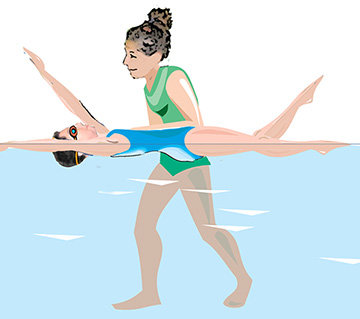Don't be afraid to ask for help |
|
As far back as I can remember, I have taken pride in being strong, confident, and independent. Take the year I sold almost 200 boxes of Girl Scout cookies going door to door in my neighborhood. I assumed that when the cookies came in, one of my parents would drive me around to deliver them. Not so. My Dad told me I had sold the cookies on my own, and I had to deliver them on my own. He suggested I fill my old doll carriage with cookies and get going. I learned a lesson I never forgot. I share this story to explain why needing, having to ask for, and accepting help is so difficult for many of us living with Parkinson's. It feels like an admission that there is yet another "little" thing that we can longer do by ourselves. Every concession we make to this progressive disease relentlessly chips away at the very essence of who we are:
Getting past these feelings requires we understand that helping others and allowing others to help us benefits everyone involved. The give and take is as much about allowing others to feel purposeful and appreciated as it is about having our own needs met. If one of your friends were in a difficult situation, wouldn't you want them to come to you for help? If you answer yes, why deny them the opportunity to do the same for you. I am very fortunate to have a husband who does all he can to make it easier for me to live well with Parkinson's. This includes everything from joining me in the pool to make swimming laps fun to making our house more handicapped friendly. As appreciative as I am, I admit that there are times I do not accept his help as graciously as I should, times when anger and frustration get the best of me and I take it out on the person least deserving of it. This is one more reason why Parkinson's means always having to say, I'm sorry.
|
Then there are my friends whose sensitivity and generosity never cease to amaze me. They help without being asked, careful to be discrete so others don't notice and I am not embarrassed. They shuffle the bridge cards for me, drive me wherever we go, and carry my packages when we're out shopping and my hands are occupied with my walking sticks. One friend has devoted two years to weekly one-on-one swimming sessions that have greatly improved my physical conditioning and emotional well-being. I have found that those who offer to help us really want to do so, but need direction from us. We get the best results by:
Swallowing our pride and asking for help is a sign of strength and character, not weakness. Don't be afraid to ask for help when you need it! "It's not the load that breaks you down; it's the way you carry it." Lena Horne, American singer, dancer, and actress (1917-2010)
|
|
|
email us directly at: Sheryl@pdplan4life.com (c) 2015 PDPlan LLC All Rights Reserved Without express written consent, this material may only be used for your own personal and noncommercial uses which do not harm the reputation of PDPlan LLC, provided that you do not remove any copyright. To request permission to reproduce, please contact PDPlan LLC at Sheryl@pdplan4life.com |
 |
 |



